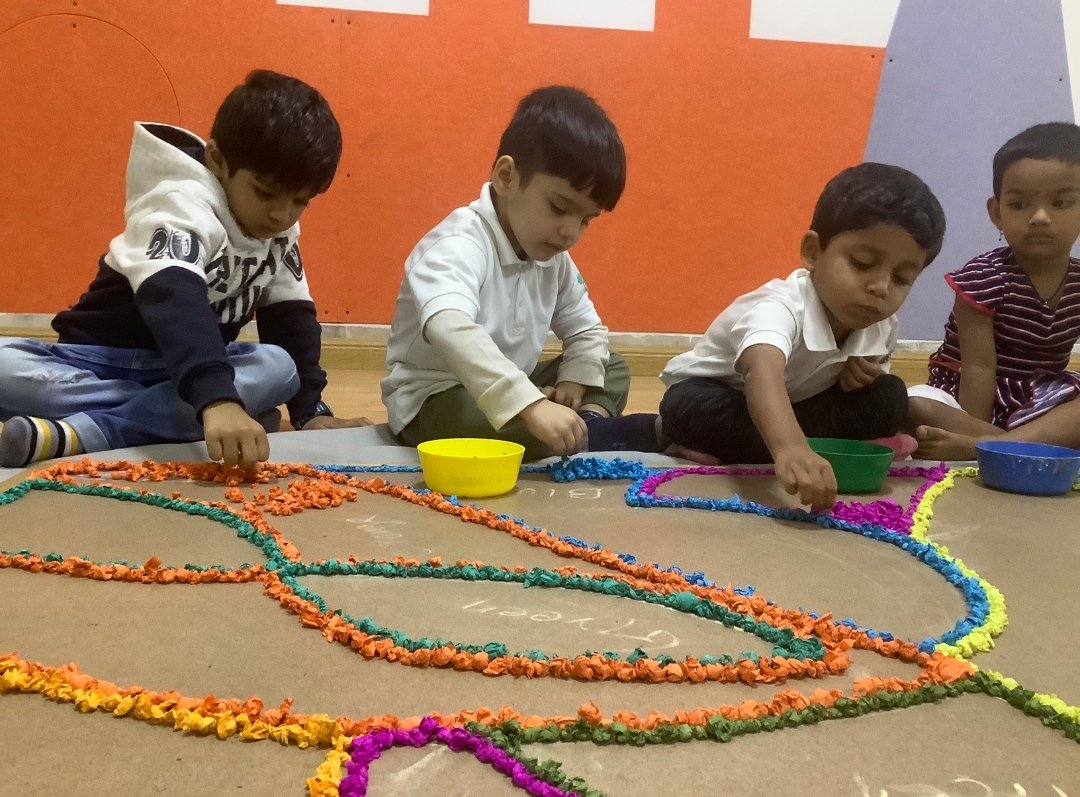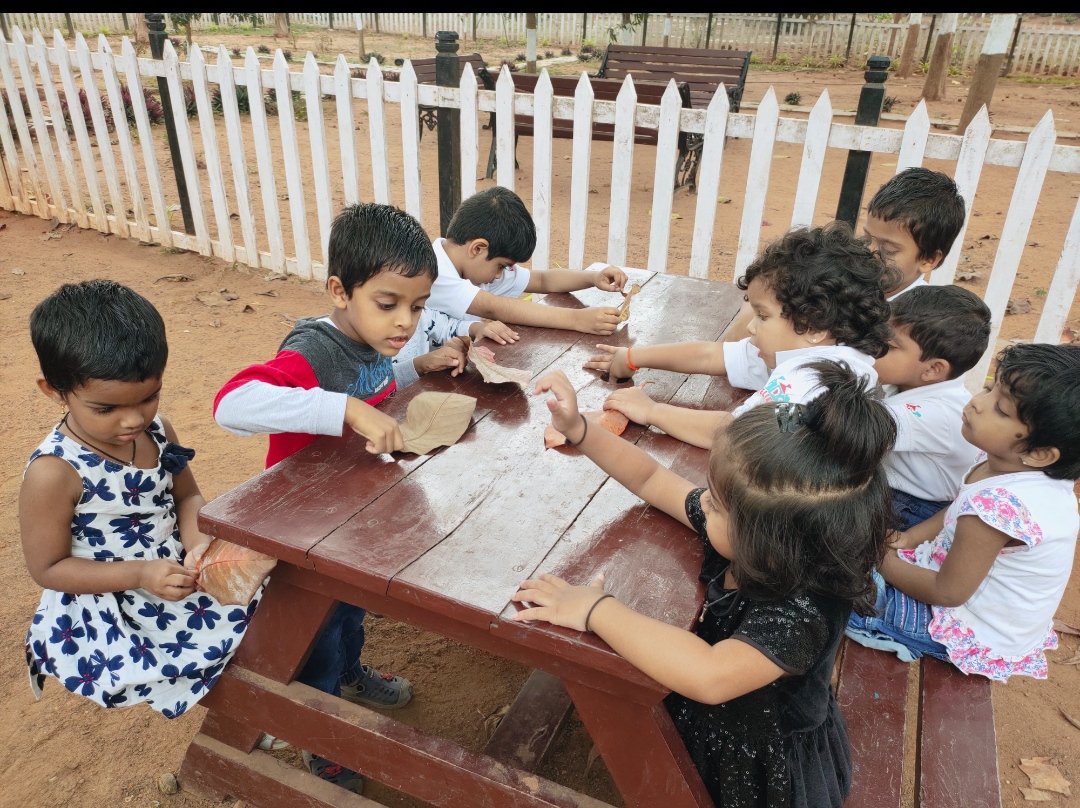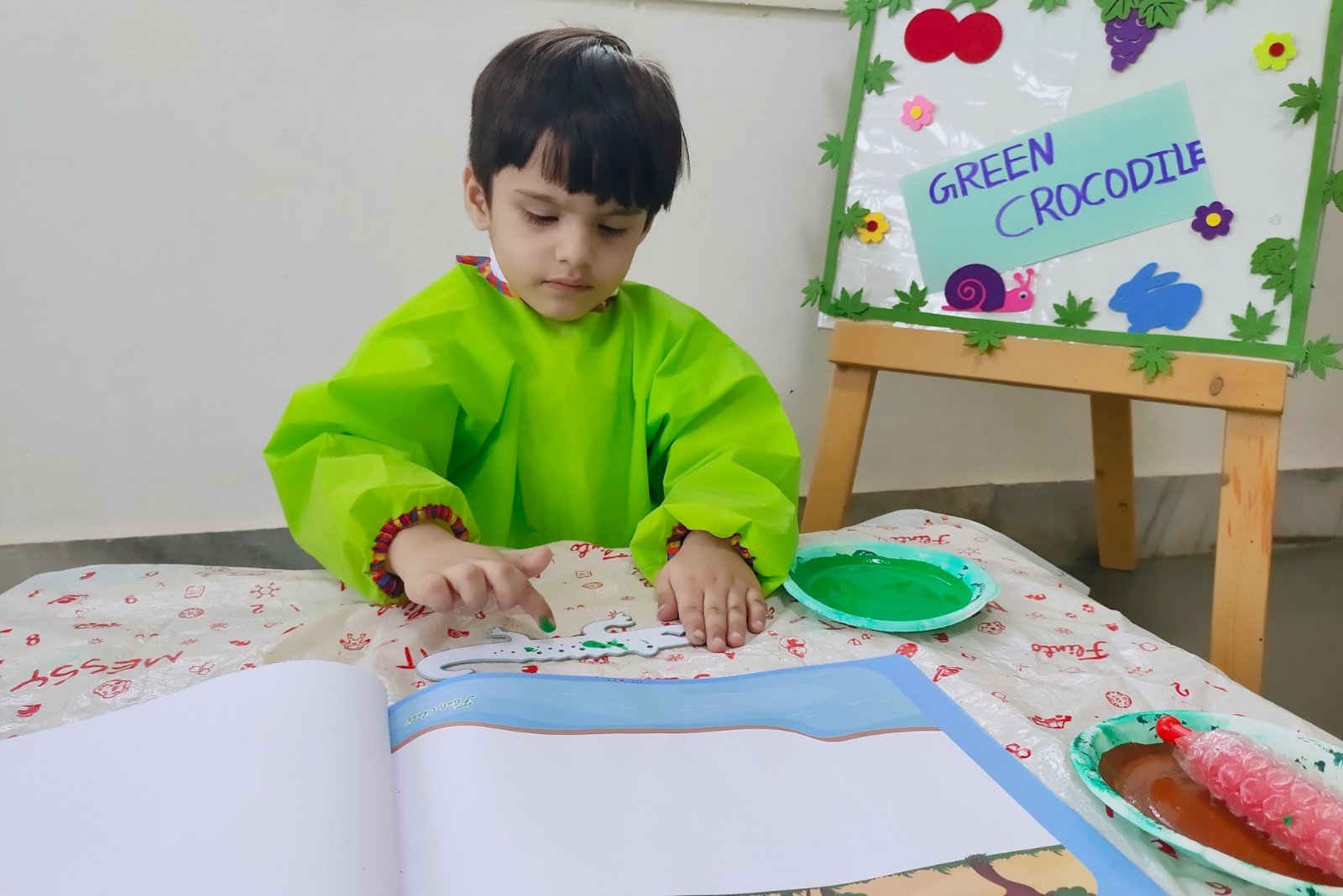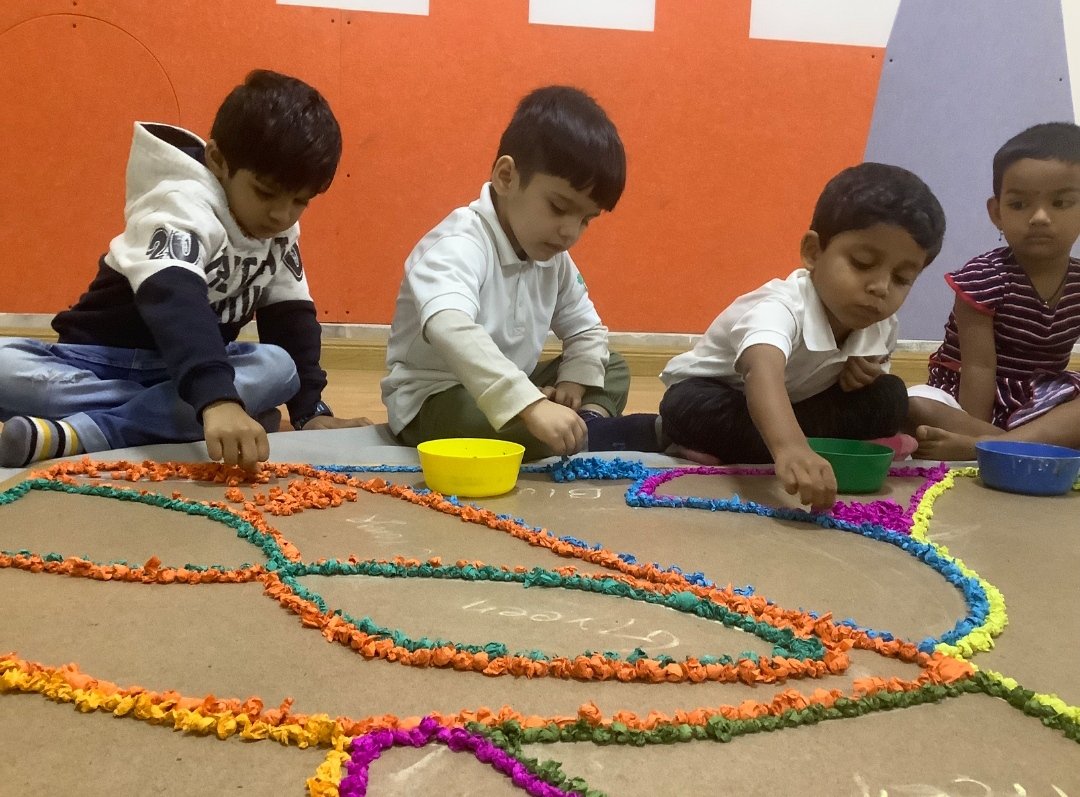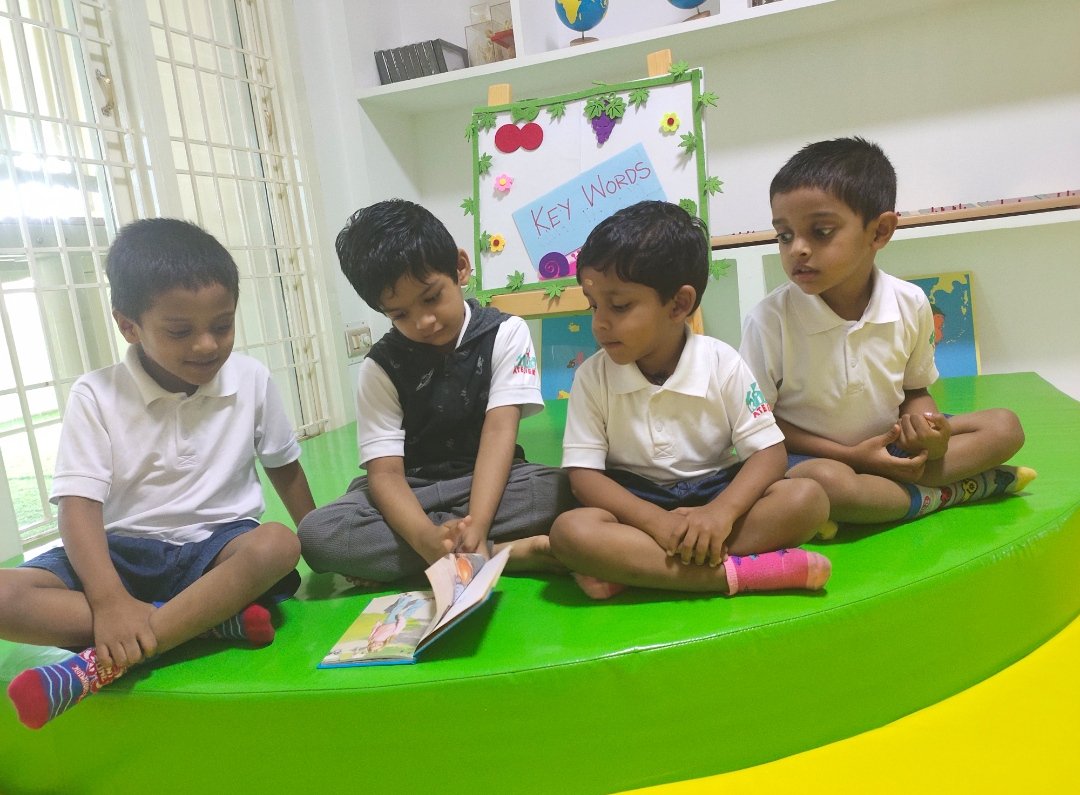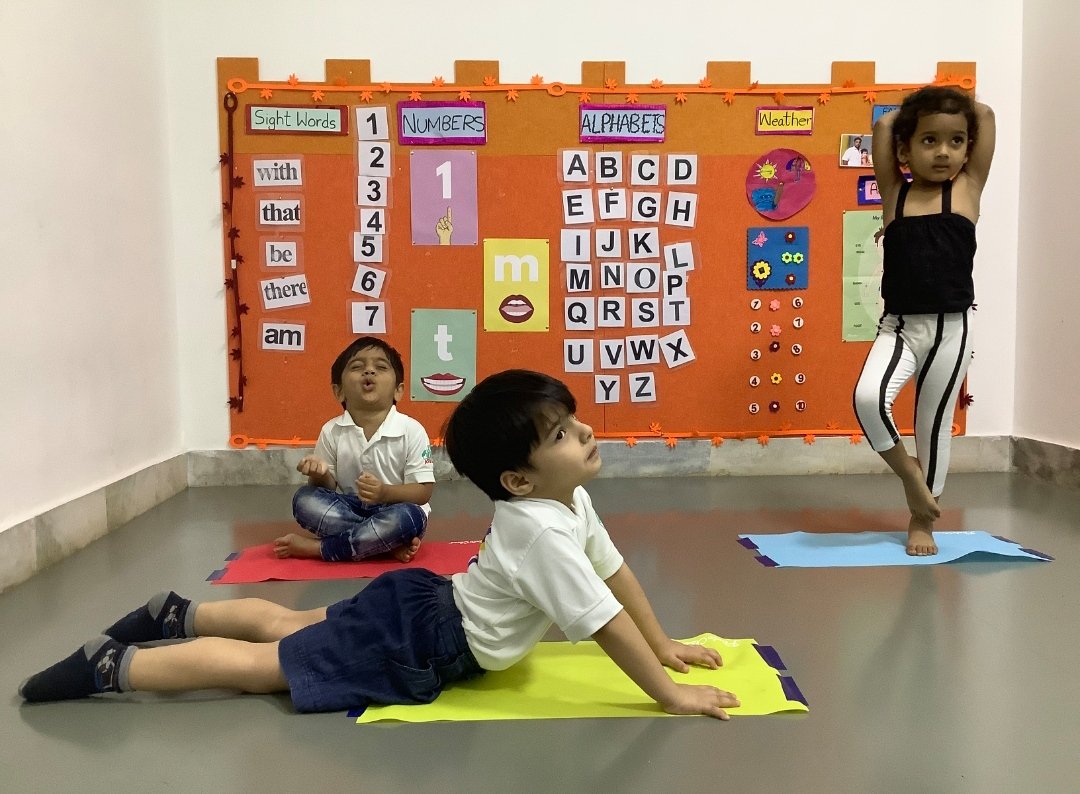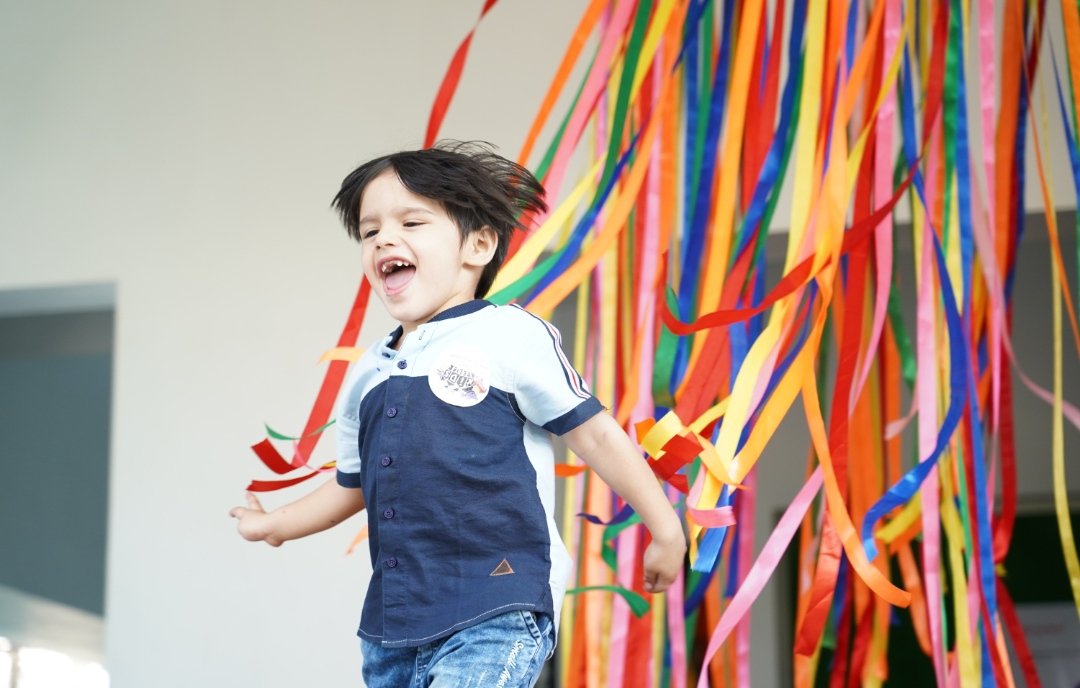"Kindergarten children are confident in spirit, infinite in resources, and very eager to learn and explore. For children this age, everything is possible"
Our Kindergarten program recognizes that children will soon be entering grade-school; hence it is vital that we equip them with the resources needed to succeed in school. Our program is based on the belief that children are competent learners who are eager to explore the world around them. The program runs for about 5.5 hours everyday wherein educators work collaborate with children to generate a program that meets curricular outcomes while engaging children in their interests and talents. In this approach, the educator becomes a co-constructor of knowledge along with the child and designs units and projects that children are interested in working on.

